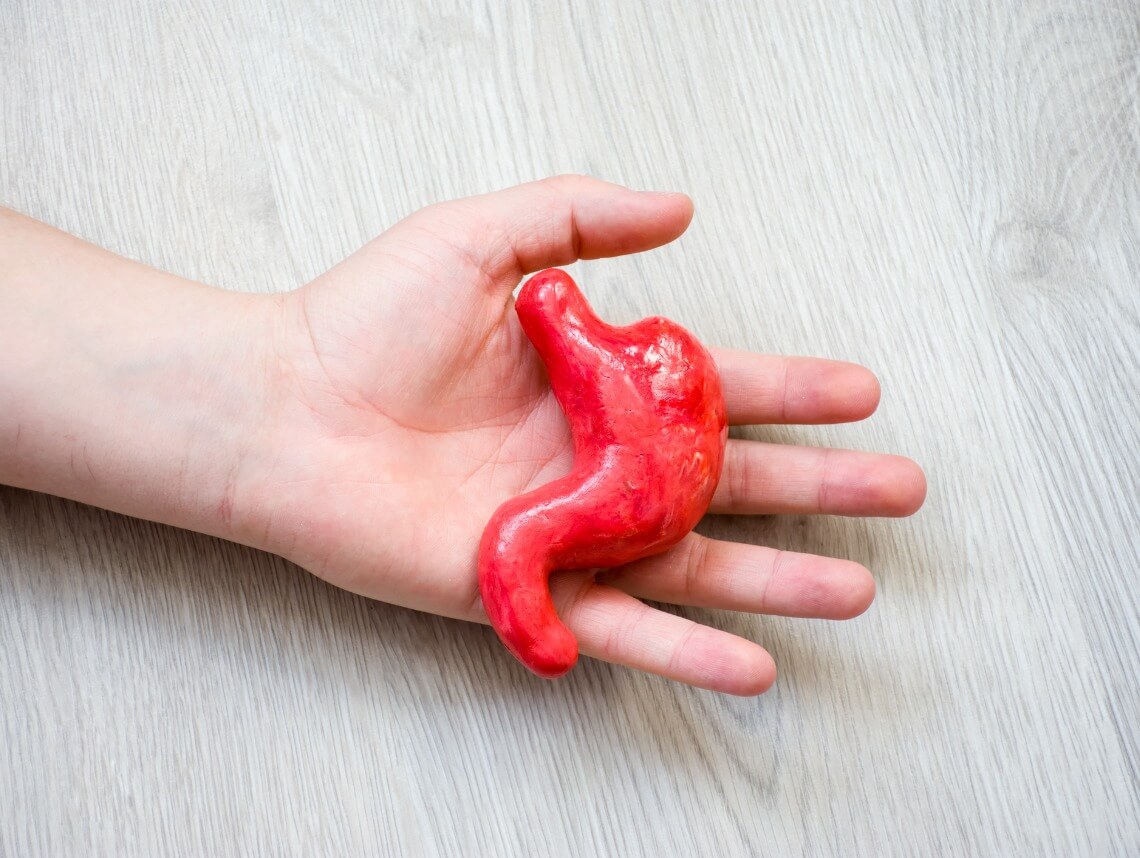
Pyloric stenosis is an extremely alarming and distressing condition to encounter as the parent or caregiver of an infant. The good news is that although the symptoms and complications of pyloric stenosis can be serious, it can be treated with surgery. This means that in most cases, there is a positive long-term outcome for this disorder.
If you have concerns about the symptoms, treatment, and how to meet child care needs for your little one, the following overview can help. We want to give you the knowledge and support to make well-informed decisions that are best for your entire family.
What is pyloric stenosis?
Pyloric stenosis is a rare condition that causes abnormal growth of the muscular valve, called the pyloric valve, which allows food to pass between the stomach and the small intestine. As a result, food can become trapped in the stomach, leading to the symptoms and complications associated with this condition.
Stenosis refers to any excessive narrowing that can cause blockages, so pyloric stenosis means narrowing of the pyloric valve. This is a rare condition that typically is not present at birth, but develops in the early months of infancy.
Pyloric Stenosis Causes
The causes of pyloric stenosis in infants are still not fully understood. The condition develops soon after birth and causes the muscles around the pyloric valve to become thickened and overly large, preventing food from leaving the stomach. Medical researchers believe that the condition is due to either genetic or environmental factors, or some combination of the two.
Pyloric Stenosis Risk Factors
Potential risk factors that physicians have associated with pyloric stenosis in infants include:
- Biological sex and birth order, as the condition seems to be most common in first-born boys
- Premature births
- Smoking during pregnancy
- Early antibiotic use
- Ethnicity — children of European ancestry tend to be at a higher risk of pyloric stenosis
- Bottle feeding
Pyloric Stenosis Signs and Symptoms
Symptoms of pyloric stenosis typically develop three to five weeks after birth. Common signs of the condition include:
- Forceful vomiting, particularly after feeding
- Constant hunger and appetite, due to limited food reaching the intestine
- Dehydration
- Muscle contractions in the abdomen
- Limited bowel movements or difficulty with bowel movements
- Low weight and delayed development
Pyloric Stenosis Complications
Pyloric stenosis can lead to serious complications due to inadequate nutrition. This includes an overall failure to thrive, grow, and develop. The repeated vomiting can cause serious stomach irritation and potential bleeding in the stomach. Rarely, Jaundice can also be a complication due to buildup of bilirubin in the liver.
How Doctors Diagnose Pyloric Stenosis
To diagnose pyloric stenosis, doctors will usually perform a physical examination, ask questions about symptoms, and order tests. In many cases, the doctor may be able to identify a small lump in the abdomen caused by the enlarged pylorus valve.
Tests to confirm the presence of pyloric stenosis can include blood tests, ultrasound, and/or X-ray.
Pyloric Stenosis Treatment Options
Surgery, called a pyloromyotomy will be required to treat pyloric stenosis. Due to the high rates of dehydration and malnourishment associated with the condition, fluid replacement will often be needed before any procedure.
A pyloromyotomy involves cutting through the outside layer of the pyloric valve muscle. This creates an opening that allows food to pass into the small intestine and allow for normal digestion.
Newer techniques have enabled this type of surgery to be performed as a minimally invasive procedure. This can mean a shorter recovery time and less scarring compared to traditional pyloromyotomy.
Caring For a Child with Pyloric Stenosis
Infants with pyloric stenosis can have special care needs before and after the surgical procedure. This often includes administering prescribed medications, meeting nutritional needs, and recovering from the surgery itself. Families often find challenges meeting these requirements while maintaining an often busy schedule. This is why many people turn to pediatric home health services.
Pediatric home health services can fill a wide range of care needs for any family dealing with a condition such as pyloric stenosis. This can include helping with medication, nutrition, rehabilitation, and accompanying your child to appointments. The right pediatric home health professional can become a key member of your extended treatment team and a welcome part of your home.
Contact Care Options for Kids for Home Health Care in Florida
It can be hard to balance your time between work, home, and caring for a child. That’s why our team of professionals at Care Options for Kids is here to help. We have been enforcing precautionary measures and following the Centers For Disease Control (CDC) guidelines for COVID-19 to ensure the safety and health of our clients and employees.
Our home health care services offer one-on-one support in the comfort of your home. We refer loving and competent nurses to provide customized care for families — from a few hours a day to around-the-clock supervision. Contact us directly to speak with a home health care professional or request a free in-home assessment. Together we can determine the best plan of action to keep your loved ones happy and healthy.
If you or a loved one are considering Pediatric Home Health Care Services in Florida, contact the caring staff at Care Options for Kids. Call today at (888) 592-5855.
